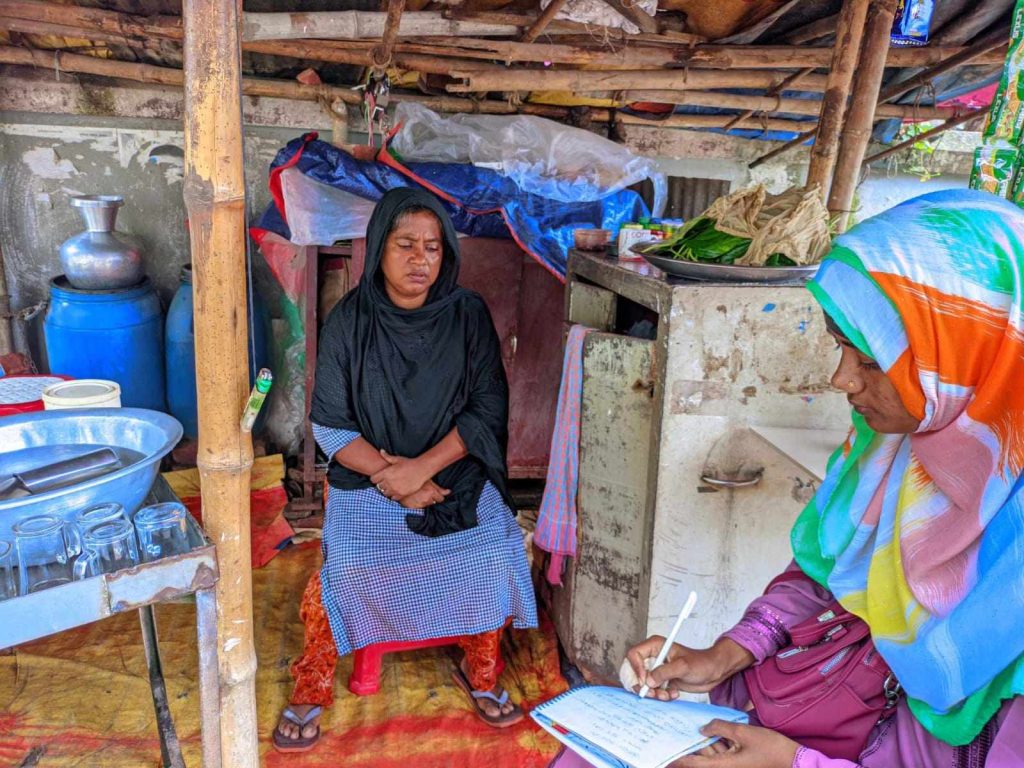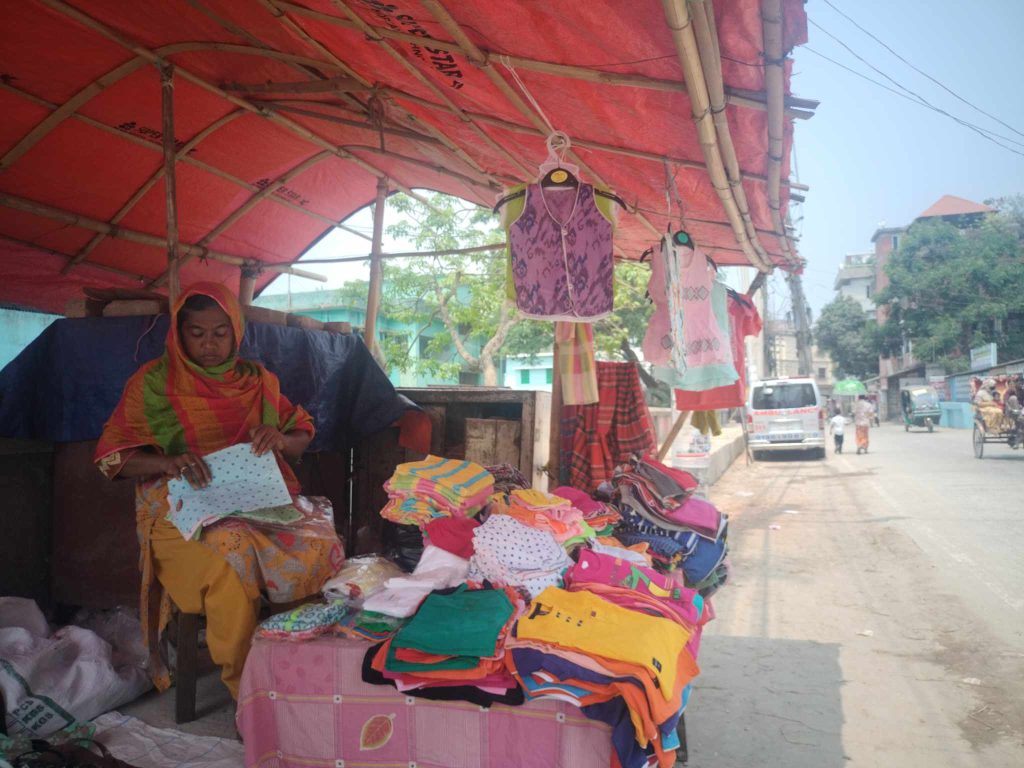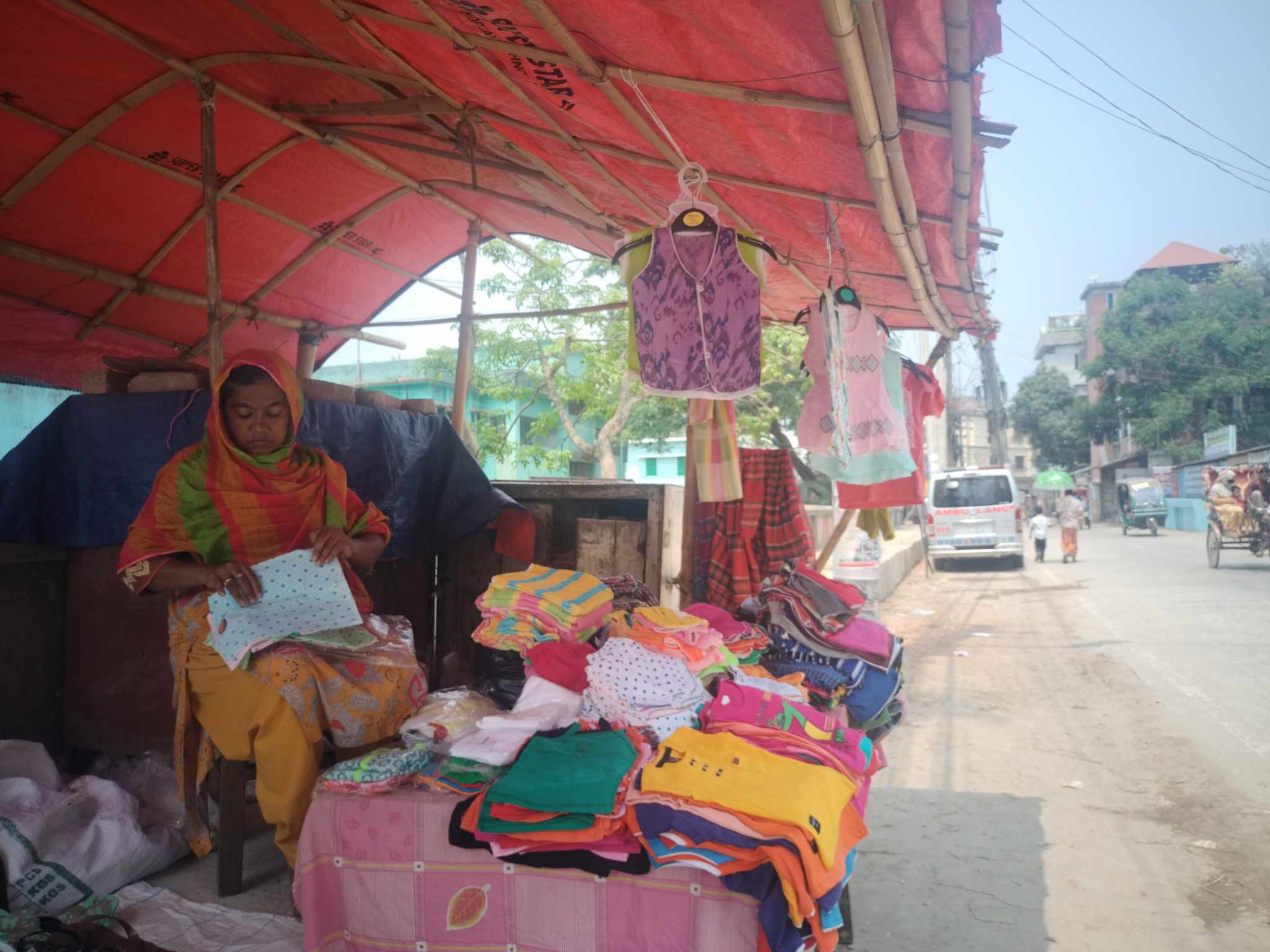By Tahura Akter, Netrokona
Dola Khatun is not just a tea-seller—she is a symbol of courage, dignity, and resilience. Hailing from a remote village in Netrokona, her journey from poverty and oppression to empowerment and recognition is nothing short of extraordinary.
Born on June 21, 1980, in Mahmudpur village of Netrokona, Dola’s life began in hardship. Her father, Afsar Akand, passed away when her mother, Anowara Khatun, was just six months pregnant with her. Left to raise seven children alone, Dola’s mother struggled to provide for the family. From a young age, Dola endured extreme poverty, emotional neglect, and mental abuse—particularly at the hands of her own brothers.

Her childhood was filled with fear and scarcity. While her brothers were involved in gambling, her mother toiled alone to keep the family afloat. Dola grew up in an environment devoid of dreams, education, or even basic security. There was no room for aspirations—just survival.
As a teenager, Dola faced a terrifying situation when her brothers attempted to force her into marriage with a stranger in exchange for money. Armed and standing guard at the door, they intended to ensure her compliance. But with the silent support of her mother and help from compassionate neighbors, Dola managed to escape to her sister’s house.
There, she met a young man named Mahbub and eventually married him. For a brief moment, it seemed her life might change. But her marriage, too, turned into another chapter of pain—marked by both physical and emotional abuse.
After enduring years of suffering, Dola made a life-altering decision—she would no longer live in fear or dependence. Leaving behind everything familiar, she moved to Dhaka, where she began selling small items door-to-door. Her journey of self-reliance had begun.
Eventually, Dola returned to Netrokona with the hope of rebuilding her life closer to home. She set up a small tea stall in front of Joynagar Sadar Hospital. That humble stall soon became much more than a source of income—it became a symbol of her independence and self-worth. Each cup of tea she served was steeped in the aroma of determination and pride.
Her efforts did not go unnoticed. BARCIK extended financial support to help her sustain her business. Local journalist Alpana Begum played a crucial role in bringing Dola’s story to public attention, helping her gain recognition and institutional support. With their combined help, Dola not only survived—she thrived.
Though her roadside tea stall was later shut down due to various obstacles, Dola refused to give up. Adapting once again, she began selling clothes on the roadside. Now, she sits confidently with her fabric display, calling out to customers—not from door to door, but from her own space. Her face carries not exhaustion, but a quiet determination and a deep trust in life itself.

In 2019, Dola Khatun received the “Joyeeta Award”, a national honor recognizing women who have made significant contributions to empowerment and resilience. For Dola, the award was not just a personal achievement—it was a tribute to all women who fight silently against violence, injustice, and poverty.
Dola’s story is not a fairy tale. It is a powerful narrative of struggle and survival, of how one woman rose above deprivation and abuse to reclaim her dignity. She has shown that no work is small, and no dream is too big when guided by courage and self-respect.
She is not just a tea-seller or a roadside vendor she is an inspiration. A living testament to the strength of women, to the power of perseverance, and to the hope that change is possible through struggle.

